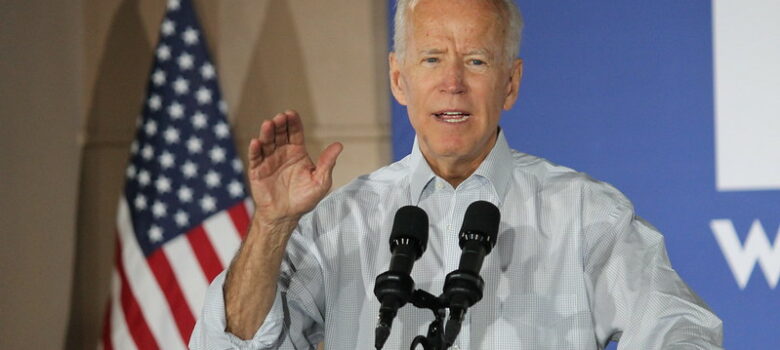The Broadcasting Act blunder series has made several references to the risk of a trade challenge over provisions found in Bill C-10. This post unpacks the trade issue and explains why the bill could result in billions of dollars in retaliatory tariffs against Canada. The starting point for the trade issue is to recognize that Canada negotiated the continuation of the cultural exemption in the Canada-US-Mexico Trade Agreement (CUSMA or USMCA). This was viewed as an important policy objective for the government, with Prime Minister Justin Trudeau insisting that “defending that cultural exemption is something fundamental to Canadians.” The exemption means that commitments such as equal treatment for U.S., Mexican and Canadian companies may be limited within the cultural sector.
Yet the cultural exemption did not come without a cost. The government rarely mentions it, but the agreement also includes a culture “poison pill” designed to discourage use of the exemption. It grants the U.S. the right to levy retaliatory measures of “equivalent commercial effect” in response to Canadian policies that would otherwise violate USMCA if not for the exemption. Since the provision does not limit retaliation to the cultural sector, the U.S. can be expected to target sensitive areas of the Canadian economy such as the dairy or steel sectors. This was the U.S. strategy last year when responding to a French plan to levy a new digital tax, which led to threats to impose US$2.4-billion in tariffs against French goods such as wine, cheese and handbags.
The poison pill has existed for many years in Canada-U.S. agreements, but the unprecedented provisions in Bill C-10 raise the risk that the U.S. – even under a Biden administration – will see fit to exercise its power to retaliate in response. For example, Bill C-10’s regulatory power to single out individual services for specific conditions (as opposed to common rules for all) creates both significant regulatory uncertainty and invites the possibility of a trade challenge, particularly given the likelihood that U.S. companies will be targeted with the most onerous conditions. This would be particularly likely if the CRTC decides to exempt smaller services and instead use its new power to single out specific U.S. companies (e.g., Netflix, Amazon Prime, and Disney+).
The possibility of a challenge doesn’t end there. An uneven playing field for benefits – if the government or CRTC mandates contributions but does not allow the foreign streamers to access the resulting funding programs or if the government or CRTC mandate Canadian IP ownership to access tax credits or other funding programs – could spark a trade challenge. So too could
requirements to disclose detailed algorithmic data, which is data that those companies have been reluctant to make available anywhere in the world. The USMCA establishes limitations on mandated algorithmic disclosures. Article 19.16 states:
No Party shall require the transfer of, or access to, a source code of software owned by a person of another Party, or to an algorithm expressed in that source code, as a condition for the import, distribution, sale or use of that software, or of products containing that software, in its territory.
There is a notable exception to this general prohibition, however. It states:
This Article does not preclude a regulatory body or judicial authority of a Party from requiring a person of another Party to preserve and make available the source code of software, or an algorithm expressed in that source code, to the regulatory body for a specific investigation, inspection, examination, enforcement action, or judicial proceeding, subject to safeguards against unauthorized disclosure.
The issue that will arise in the trade context is whether the general algorithmic disclosure requirements recommended by the panel are consistent with the exception for a “specific investigation, inspection, examination, enforcement action or judicial proceeding.”
Cultural trade challenges are rare and the Canadian government may be banking on that in the hope that its legislative proposal survives unscathed. Yet with Minister Guilbeault claiming (wrongly) that the bill will provide a billion dollars in new funding and the Finance Minister planning to levy billions more in new tech taxes, Canada may find that the new U.S. administration pushes back by seeking billions of their own in compensation for the new measures.
(prior posts in the Broadcasting Act Blunder series include Day 1: Why there is no Canadian Content Crisis, Day 2: What the Government Doesn’t Say About Creating a “Level Playing Field”, Day 3: Minister Guilbeault Says Bill C-10 Contains Economic Thresholds That Limit Internet Regulation. It Doesn’t, Day 4: Why Many News Sites are Captured by Bill C-10, Day 5: Narrow Exclusion of User Generated Content Services, Day 6: The Beginning of the End of Canadian Broadcast Ownership and Control Requirements, Day 7: Beware Bill C-10’s Unintended Consequences, Day 8: The Unnecessary Discoverability Requirements, Day 9: Why Use Cross-Subsidies When the Government is Rolling out Tech Tax Policies?, Day 10: Downgrading the Role of Canadians in their Own Programming, Day 11: The “Regulate Everything” Approach – Licence or Registration Required, Broadcast Reform Bill Could Spell the End of Canadian Ownership Requirements, Day 12: The “Regulate Everything” Approach – The CRTC Conditions, Day 13: The “Regulate Everything” Approach – Targeting Individual Services, Day 14: The Risk to Canadian Ownership of Intellectual Property, Day 15: Mandated Confidential Data Disclosures May Keep Companies Out of Canada, Day 16: Mandated Payments and a Reality Check on Guilbeault’s Billion Dollar Claim, The Law Bytes Podcast, Episode 73: The Broadcasting Act Blunder – Why Minister Guilbeault is Wrong, Day 17: The Uncertain Policy Directive)











The USMCA cultural exception, Bill C10 and the current Canadian content rules are all about the business of culture and not about telling Canadian stories. Content is classified as Canadian if certain jobs are filled by Canadians and if at least 75% of the costs are incurred in Canada. The storyline, the nationality of the characters, and the story location are not considered at all in classifying content as Canadian. That means a show about the US Civil War could be deemed Canadian while a show about Laurier could be deemed non-Canadian.
To make matters worse there are watered down special rules for co-ventures and treaty co-productions that allow foreign made shows, like Vikings, to be classified as Canadian and, as a result, receive Canadian subsidies.
And because it is all about business the Americans will retaliate and the Canadian government will continue to lie and claim it’s about Canadian stories. In the end the big losers will be the Canadian public.
I don’t think so there’s anything wrong with the blunder in the broadcasting act!